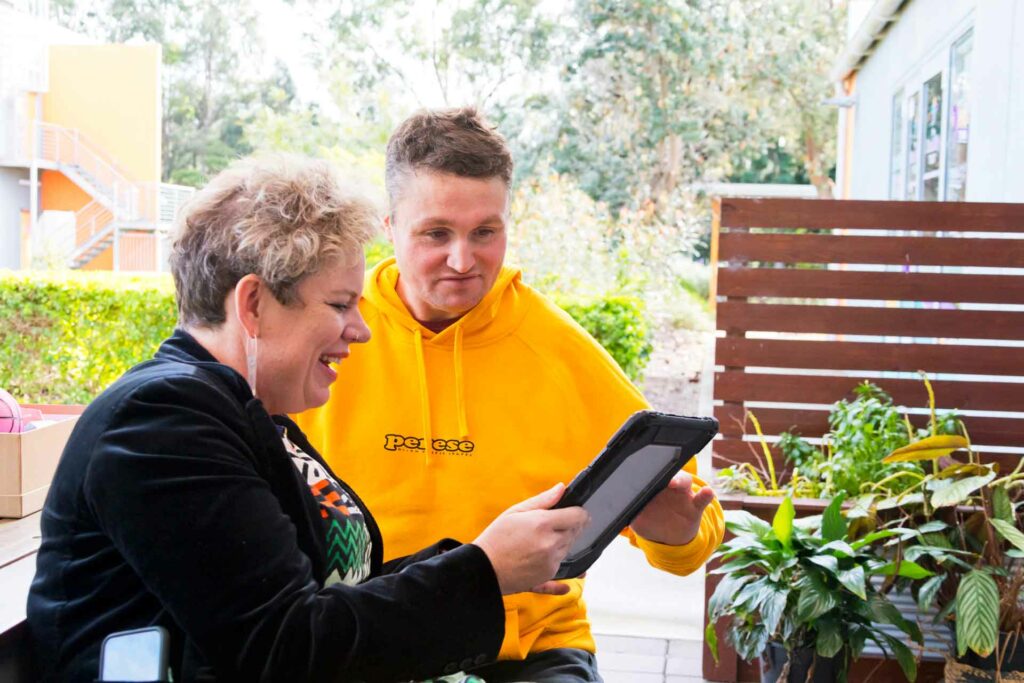What is PBS?
Positive Behaviour Support (PBS) is a proactive and person-centred approach that aims to improve quality of life and reduce behaviours of concern. PBS is based on understanding and addressing the underlying causes of behaviour, rather than simply treating the behaviour itself.
How can PBS help people with disability?
PBS recognizes that behaviours of concern are often a form of communication. People with disability may engage in behaviours of concern because they are unable to communicate their needs and wants in a way that others understand; or because they are experiencing some form of discomfort or pain. PBS seeks to identify the underlying causes of behaviours of concern and develop strategies to address those causes.
How does Positive Behaviour Support work?
The first step in implementing PBS is to conduct a functional behaviour assessment (FBA). An FBA involves gathering information about the individual’s behaviour, the circumstances in which it occurs, and the consequences that follow. This information is then used to develop a hypothesis about why the behaviour is occurring. Once a hypothesis has been developed, an intervention plan can be developed to address the underlying causes of the behaviour.
Positive behaviour support does not ever include punitive approaches or utilise punishment. A PBS approach is strengths based and utilises the person’s individual goals and skills to ensure customised strategies that are meaningful and likely to achieve positive outcomes.
What is a PBS Intervention Plan?
Intervention plans developed through PBS are typically positive and proactive. PBS is skill development focused – helping the person and people around them to learn new and more adaptive ways of meeting their needs. This may involve supporting an understanding of communication skills, social skills and developing helpful coping strategies.
PBS is not only about the person themselves developing new skills, but the support team around a person learning different ways to provide support. PBS has a particular focus on training and support for the people implementing the plan, to ensure people are working cohesively and consistently toward the person’s goals.
For example, if an individual engages in self-injurious behaviour when they are in pain, A PBS intervention plan might may be to introduce a communication device to support the person to communicate this in a more adaptive way. It will also include assisting the team supporting the person in identifying early signs that the person may be experiencing discomfort, and intervening before behaviours of concerns are required.
Environmental Changes
In addition to skill development, PBS also involves making changes to the environment to suit the individual and their needs. This may involve making changes to the physical environment, such as reducing noise levels or making sure the environment is rich with opportunity for the person to meaningfully contribute and participate.
Benefits of PBS
A PBS approach can make a significant positive impact on a person’s life, their relationships, participation and their human rights. By focusing on understanding the person, skill development and addressing underlying causes, PBS can improve the quality of life of individuals with disabilities and promote positive interactions with their environment.

More Articles

What is Occupational Therapy
What is Occupational Therapy? Occupational Therapy (OT) is a branch of healthcare that focuses on helping people with disabilities to participate in everyday activities, including

What is Speech Pathology
What is Speech Pathology? Speech pathology services are crucial for people with disability who experience difficulties with communication, including speech, language, and swallowing. These services

What is PBS
What is PBS? Positive Behaviour Support (PBS) is a proactive and person-centred approach that aims to improve quality of life and reduce behaviours of concern.